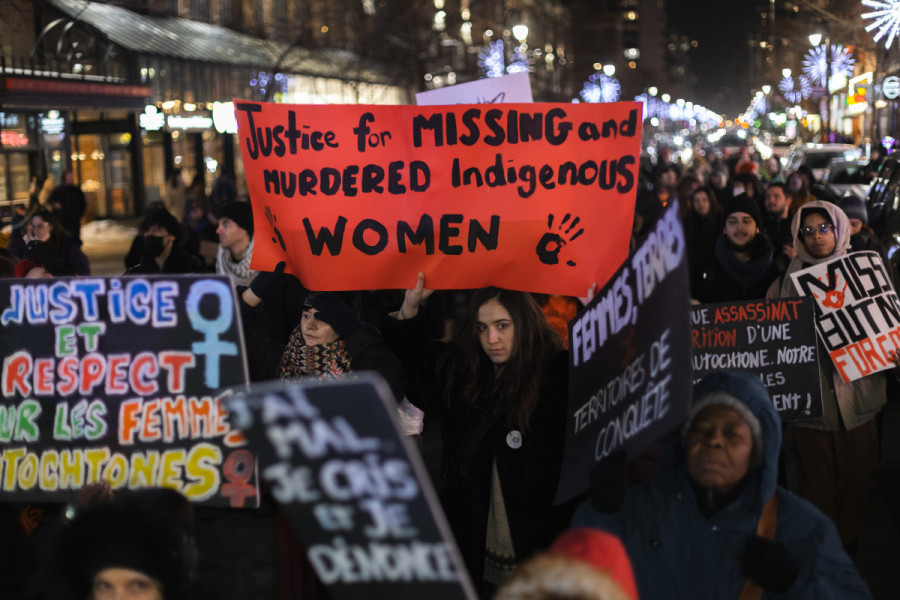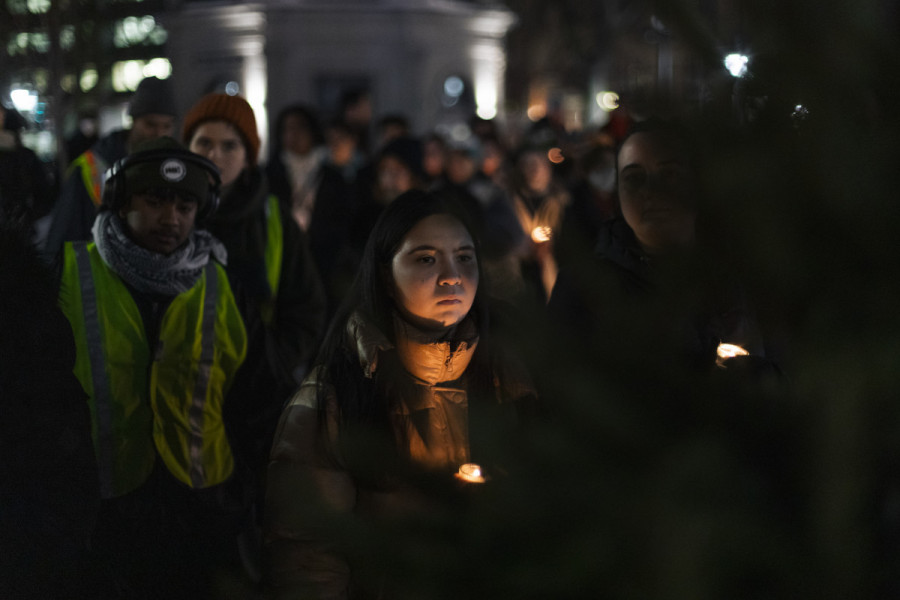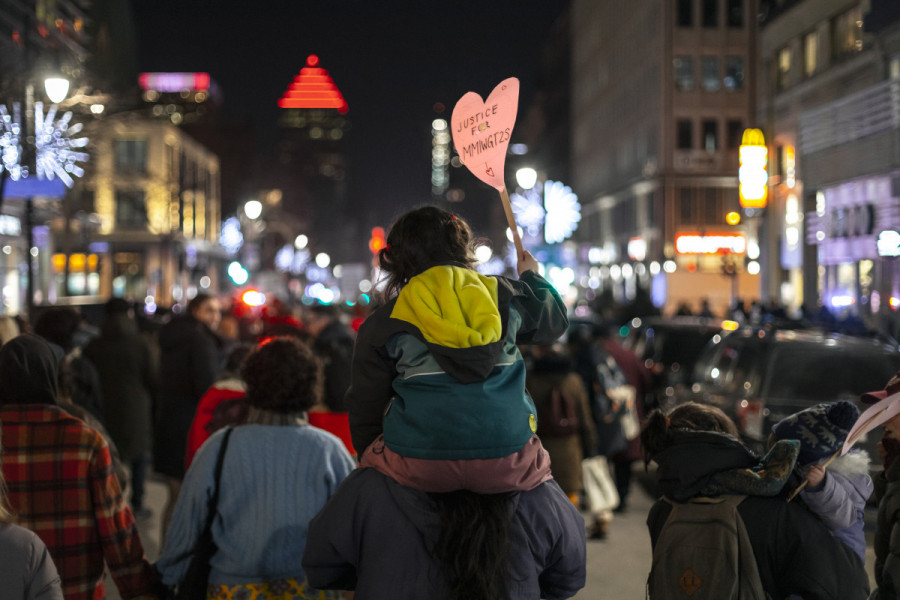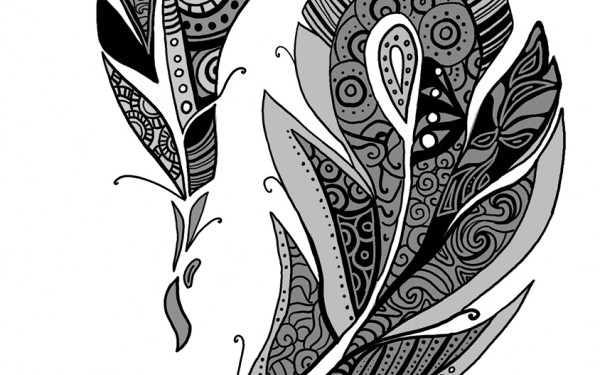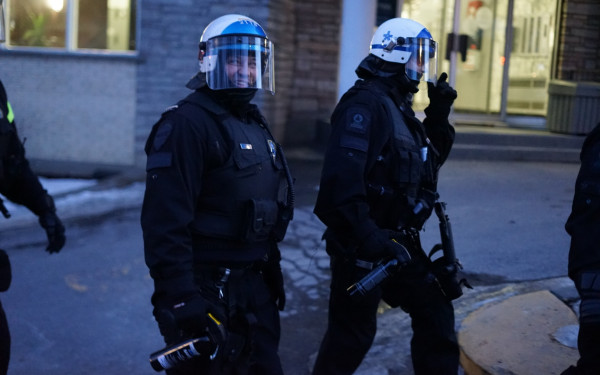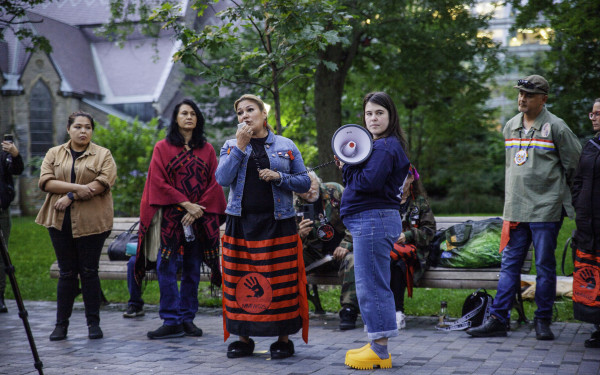Montrealers Mourn Missing and Murdered Indigenous Women
Hundreds Join Annual MMIWGT2S Vigil in Montreal
On Feb. 14, Montrealers gathered near the Atwater metro station to commemorate the lives of Missing and Murdered Indigenous Women, Girls, Two-Spirit and Trans people.
The Iskweu Project, an initiative started by Montreal’s Native Women’s shelter, hosted the candlelight vigil which was attended by around 200 protesters.
Iskweu’s Research Coordinator, Janis Qavavauq-Bibeau, explained the importance of media exposure in the fulfillment of the project’s goal: assisting families impacted by the prevalent violence against Indigenous women and girls.
“The media wasn’t giving enough attention to cases of Indigenous women, so we started doing vigils to get some more attention,” she said.
According to the Truth and Reconciliation Commission, Canada’s lengthy colonial history and the resulting intergenerational trauma inflicted on Indigenous communities have a direct influence on ongoing increases in violence experienced by Indigenous women. The Iskweu Project aims to advocate for and provide support to those directly and indirectly impacted by violence against Indigenous women.
The National Inquiry into Missing and Murdered Indigenous Women and Girls has reported that Indigenous women and girls make up 24 per cent of female homicide victims in Canada, despite only making up four per cent of the country’s female population.
In response to what Iskweu describes as a lack of adequate response to police cases involving Indigenous women, the project gathers annually on Feb.14 and Oct. 4 to help provide a voice to the families and loved ones of those who have suffered.
At the vigil, a number of volunteers assisted the event’s organizers. Handing out small tealight candles, Cabot Square was gently lit as the sound of throat singers and drummers kicked off the vigil.
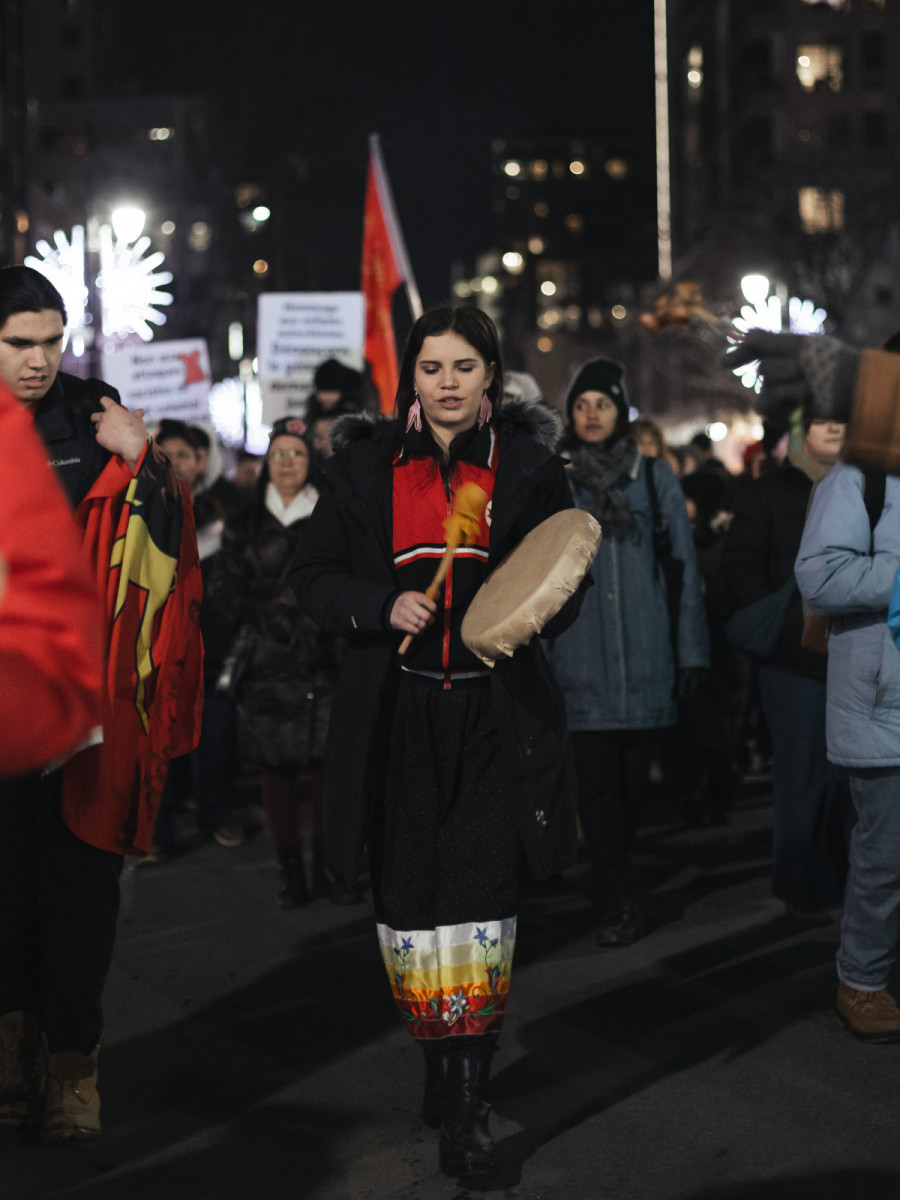
Volunteer Matilda Cerone, who has attended Iskweu’s annual vigils for three years, expressed her joy at seeing the crowd that had gathered for the event.
“It’s just nice to see a lot of people,” she said, noting how the pandemic had previously impacted Iskweu’s ability to gather in person.
Before departing on the protest route down Sainte-Catherine St., community leaders like Elder Kevin Deer and Ellen Gabriel, addressed the large crowd.
Deer denounced the violence that has been taking place against Indigenous women. “When we see that we are all participating in this sacred dance of life [...] we have no right to kill another human being.”
During her speech, Gabriel encouraged attendees to hold governments accountable for their failures to properly investigate cases of Missing and Murdered Indigenous Women.
“Put pressure on your government, don’t leave it up to Indigenous people,” she said.
“We can fight the fight, but we have been fighting for over 500 years,” Gabriel added.
After the leaders finished addressing the crowd, the vigil transitioned into a protest march which exited Cabot Square and converged onto Sainte-Catherine St.
Accompanied by police cruisers, the large crowd could be heard chanting “no more stolen sisters,” as drummers marched in unison with the crowd.
Iskweu’s announcements for the protest, which were widely shared through Instagram and Facebook, featured a QR code that leads to the National Inquiry into Missing and Murdered Indigenous Women and Girls’ Master List of Report Recommendations.
The document points out the numerous systemic failures in the treatment of Indigenous cases, and the areas in which Indigenous peoples need additional support in the hopes that the violence finally comes to an end.
This article originally appeared in Volume 43, Issue 12, published February 21, 2023.

